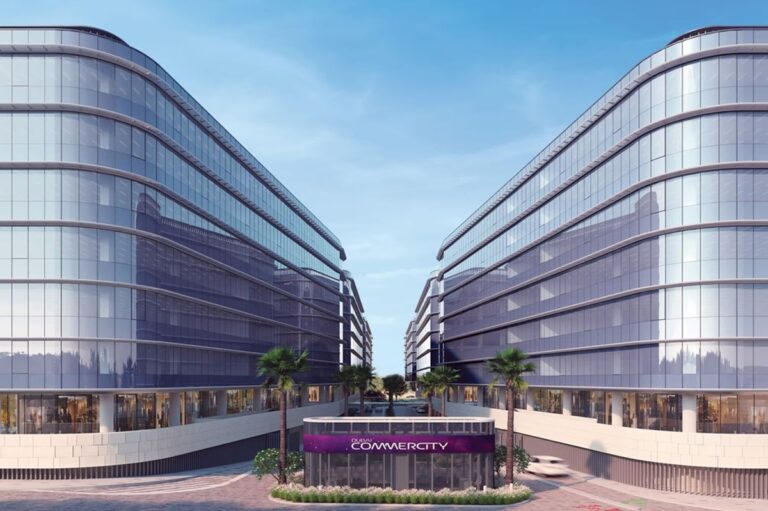Dubai CommerCity has reported exceptional growth across its operations, with the Business District reaching an occupancy rate of about 98 per cent as global technology, artificial intelligence and e-commerce companies increase their presence in the free zone’s smart business ecosystem.
Abdulrahman Shahin, Senior Vice President, Property Management and Supply Chain for Dubai CommerCity, said six new buildings are under development to meet rising demand.
He said the Logistics District has reached full occupancy at 100 per cent, driven by fashion, electronics and last-mile delivery companies.
Dubai CommerCity
Shahin added that the Social District has reached full operational capacity, with restaurants, cafés and retail outlets now supporting the free zone’s business community.
He said the growth reinforces Dubai CommerCity’s role as a key hub for the digital economy, aligned with the Dubai Digital Economy Strategy, which aims to double the sector’s contribution to the emirate’s GDP by 2032.
To meet rising demand from digital commerce companies, Shahin revealed plans to establish a new e-commerce fulfilment centre by the third quarter of 2026.
The initiative supports the UAE E-Commerce Strategy, which seeks to attract investment, streamline business establishment procedures and increase the sector’s contribution to GDP.
Automation productivity gains
Shahin said Dubai CommerCity has introduced automated robotic systems to accelerate order fulfilment and reduce shipment processing time. The digital transformation resulted in a 158 per cent increase in processed orders within a single year, significantly reducing processing and delivery times.
He added that the free zone’s strategic location near Dubai International Airport enhances export and re-export efficiency, while the DCC Way ecosystem enables access to around 3bn consumers within five hours of flight time.
Shahin highlighted growing investor interest in sustainable operations, smart technologies and integrated re-export infrastructure. Dubai CommerCity applies environmentally friendly practices — including the use of treated water in air conditioning systems, solar panels, advanced electric vehicle charging stations capable of fully charging a vehicle in 32 minutes, and energy-efficient building systems — across all of its facilities.
He said these initiatives demonstrate the free zone’s commitment to sustainable, smart infrastructure and reinforce its position as a preferred destination for companies focused on green e-commerce, clean technologies and environmentally responsible operations.
Machine learning
Shahin also pointed to growing investment in logistics infrastructure that supports re-export flows and links Dubai CommerCity with the wider DIEZ ecosystem under the Dubai Cross-Border Trade Strategy. He said investors are increasingly targeting artificial intelligence, Internet of Things and machine learning sectors.
The free zone is also supporting startups through incubators and incentive programmes, strengthening Dubai’s position as a global centre for digital innovation.

